Narrow Gate. Why the World Should Save “Azov”
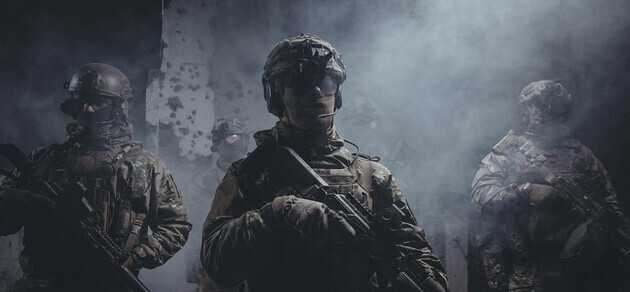
article by INNA VEDERNIKOVA, ZN.UA politics editor
“Enter through the narrow gate; for the gate is wide and the road broad that leads to destruction, and those who enter through it are many. How narrow the gate and constricted the road that leads to life. And those who find it are few. …”
The Gospel according to Matthew (7:13–14)
The scale at which the Azov regiment right now continues to hold the line is a pure manifestation of the Spirit of the Ukrainian people. The fighters, ready to die for their values, are burying the grubby doctrine of the “Russian world” in front of Putin’s ideologists. The empire is no more. Taking what doesn’t belong to you is prohibited. We will fight for our freedom.
However, the way from the creation of the Azov Volunteer Battalion in 2014 to a Separate Special Forces unit of the National Guard of Ukraine, which became a symbol of resistance in 2022, is a long one. It (unlike the Ukrainian state) has seen not only day-to-day preparations for an inevitable war with Russia, but also conjectures on which the collective solovyovs, simonyans and skabeyevas (Mr Solovyov, Ms Simonyan, and Ms Skabeyeva are Russian state television presenters and pro-Putin political commentators – ed.) have been building their criminal propaganda for eight years.
What was Azov born from and how did it become the elite of the Ukrainian army? Why did the Ukrainian authorities, always fearing it, still not move it and let it develop? What does politics have to do with it, and at what point did the Ukrainian state become the highest value for its fighters? What lies behind the fiery gates, which are being guarded by the Azov fighters with their last strength? Who can save them? And how not to lose the country on having won the present war?
This was discussed with Giorgi Kuparashvili, the Azov instructor, who has been part of a group of regular military officers in the battalion since the first days of its foundation. At the beginning of the second phase of the war, my interlocutor was responsible for the defence of the northern part of Mariupol City. He was seriously wounded and taken to hospital. Today he is in constant communication with his comrades-in-arms, and we spoke immediately after he crossed the Ukrainian border. Having finished treatment in Germany, the officer returns home, to Azov.
It was a surgical operation. We both felt pain.
On ideology, the role of radicals in history and the set level of war
— Giorgi, you were with the guys from the very beginning. The forming of the battalion, the ideology, the people, the defence of Mariupol in 2014, the vigilant supervision of ex-Head of the Ministry of Internal Affairs Mr Avakov, the creation of the National Corps as the political wing of Azov, the leaving of first commander Biletsky for politics, and finally the second phase of the war with Russia of February 24, which has for the regiment already turned into a stoic defence, watched by the whole world. What did you and Azov go through before its fighters were blocked by the aggressor in the catacombs of Azovstal?
— When in 2014, after the Maidan (also known as The Revolution of Dignity, when deadly clashes between protesters and the security forces culminated in the ousting of elected President Yanukovych and the overthrow of the Ukrainian government – ed.), the war with Russia began in the Donbas region, our group was in Georgia. However, we immediately came to Ukraine, because, firstly, the Georgians needed to repay the debt to your country, and, secondly, we had and still have a common historical enemy, which we understood very well. We were invited by Sergey Taruta, at that time the governor of the Donetsk region. At first, we were based in Petrovtsy and trained volunteer units created on an operational basis. At some point, an offer was made to meet with the commanders, namely the founders of the Azov regiment, among whom was Andrei Biletsky. Literally a few days later (in the end of May), we already left for Gurzuf, where Azov was stationed. We got into work really quickly. A command-and-control center was established. Individual and collective trainings, including headquarters, started. Meanwhile, Azov carried out combat missions set by the command of the armed forces. There was a war.
— Let’s explain right away the phrase about the debt to Ukraine.
— We have not forgotten that in the 1990s, when Georgia had truly hard times, Ukraine was the only country that responded to our pain. The Ukrainian National Assembly – Ukrainian People’s Self-Defence battalions took part in the combat engagement in Abkhazia on the side of Georgia. In September 1993, at the most critical moment, President Shevardnadze turned to your President Kravchuk with a request to take the refugees out of the encircled Sukhumi. Then Ukraine for the first time as an independent state conducted a peacekeeping operation. Within 48 hours, Ukrainian helicopters transported thousands of refugees to Georgian-controlled territory. Plus, as I said, we all already understood then who our common enemy was.
— Did Ukraine understand it? There is a feeling that only now our society, experiencing inhuman pain, looking at the dead bodies of women, children, and the elderly, crippled soldiers, meaningfully began to look back. The categoricalness of representatives of the nationalist movements, which grew out of the old history of the, say, Organization of Ukrainian Nationalists and the Ukrainian Insurgent Army, has now become common. Two Chechen wars, during which the Russian under-empire solved its internal political problems with carpet bombing ... then Abkhazia, Transnistria, Georgia again ... Finally, Crimea and Donbas. Sooner or later, they would come to kill us anyway.
— In order to assess what had been happening to the post-Soviet countries until 2014, when Putin invaded Ukraine, it was necessary to have an alternative information space. There was no such. As a result, in the 1990s, Georgia was left face to face with Russia. In 2008, Saakashvili, already a President, warned that there would be Ukraine and Crimea, speaking at the UN. Then the world community reacted sceptically to his words. The ambitions and appetites of the empire were obvious, but no one smacked it upside the head.
— Those appetites were obvious even to Dzhokhar Dudayev. I have watched the video, where he warns about Ukraine, without which the “Russian world” will never have a basis. The inevitability was discovered twenty-five years later... And by the way, at the same time he prophetically said that Ukraine would never obey Russia.
— Unfortunately, people/countries often don’t hear each other until they get their own tragic experience.
— Now let’s speak of the people and symbols of Azov. In spring 2014, I was in the battalion and asked the guys about the Wolfsangel, having listened to, let’s say, radical statements of Biletsky dated the time of his leadership in the Patriot of Ukraine nationalist organization. I confess that all my doubts about the ideological and moral vector of the Azov core staff at that time (mind that the war was being waged) were dispelled. But this did not happen at the level of the whole country and the West, not even to mention Russian propaganda. Why?
— I have not got a clue of Biletsky’s early statements. But in 2014, he had no time to repent or debunk myths for he commanded a combat unit. Defending Motherland was his new stage and personal choice. It seems to me that he gives exhaustive answers to many questions. The press centre always worked at the battalion, and we answered whenever possible. As for the perception of Azov by the West in general and by the US Congress in particular, in 2019 they had a purely lobbying attempt to recognize Azov as a terrorist organization – and as expected, it failed. The congressman who started this persecution subsequently quit politics altogether.
In fact, rumours about fascists, nationalists, and radicals have been heard since the Maidan. And here, I believe, the Ukrainian state is largely the one to blame. Silence is an occasion for speculation. Already in November 2014, Azov became part of the National Guard. And the state, namely the Ministry of Internal Affairs, the Ministry of Foreign Affairs, were to officially protect its unit, and not just calmly turn a deaf ear to the rumours. The information front is a front as well. As a result, the neighbouring power built a whole strategy of its aggression particularly based on this miscalculation.
— Why were they silent?
— Someone didn’t care, someone, perhaps, was satisfied with such an image of the unit. But no one hides the fact that Azov was primarily made up of football fans and those close to football, in other words, hooligans with their own subculture. The work was difficult, involving upbringing the young ones, correcting mistakes, and filtering members. As for the symbol you mentioned, it only looks like a swastika or anything at first glance. A well-educated person with a healthy mind can see two Latin letters there, namely I and N, meaning the idea of the nation. Indeed, we are nationalists since the whole nation unites around the national idea during a crisis. A war is a crisis. And we needed the basis. Ukraine is our national basis.
— But at the level of first perception, stereotypes always work. This is what propaganda allowing no mistakes and growing pains is based on.
— We decided to set our own agenda instead of adjusting to the perception of Russia. Everything should revolve and revolved around Ukraine. This, in fact, is the ideology of Azov. It was always dealt with in the Cornet service (literally, the Standard-bearer service), where the fighter with the call sign Hook was in the lead. He, unfortunately, died at the very beginning of the second phase of the war. He would have explained better here. Patriotism, love for one’s country, for its history and culture, etiquette, finally. We brought up the elite within the platform, which could in time breathe new life into the Ukrainian army. We wanted our fighters to be an example for everyone. Our uniqueness lies also in the difference of people who came and stayed with us. A kind of symbiosis of varying cultures and attitudes, based on common values.
The first one is truth. It is outside the Soviet principles, where the truth shall be hidden from the people. Where this can bring a society, we are now personally experiencing from the side of the Russians literally zombified by propaganda. And it’s been happening for not just the last eight years. This is the essence of the USSR. Just remember Afghanistan and our then Soviet attitude towards this war.
— I am ashamed of Afghanistan, even though I was still at school then and also put a ‘protective cap’ on my head. But let’s get back to the Maidan and the radicals. Before now, I have always been worried and even frightened hereby. Seeking to understand their role in recent Ukrainian history, I have spoken with many representatives of different movements. The final answer was given by Belarus, and then by Kazakhstan. If it were not for the radicals at our Maidan, who turned out to be more organized and bolder than everyone else, then Ukraine would now be in Putin's stall. They were the first to go to war in 2014 and lost their lives.
— For me, radicals mean, first of all, courage. The courage to say no, to disagree, and most importantly, to defend one’s opinion, one’s vote in elections, the constitutional rights, and to go against the dictatorship…. How is this different from patriotism?
— Apparently, it is still different since the Ukrainian society later rejected the radical idea. Even Svoboda failed to enter the parliament, not to mention the Right Sector, whose business cards the Russians used to intimidate the Donbas with, before the introduction of girkins and borodais (the self-proclaimed officials of the unrecognized Donetsk People’s Republic, war criminals – ed.) there.
— Radicalism and courage have their time. Radicals constituted a minority, but they were on the front line of the Maidan. They were like the tip of a dagger. And behind them there is always a second echelon, namely people who cannot be so brave, but they support their ideas and resistance. When the goal is reached, this kind of courage again fades into the background. More moderate ones should build.
— Azovstal is also on the knife-edge today.
— Undoubtedly. Azov is now demonstrating a radical bold approach of all Ukraine. It is the first line. Therefore, it has become a symbol of freedom and resistance. But if we had not selected people with such qualities into our ranks, we would probably be speaking of completely different things now. The Azov fighters are radically opposed to the enemy and will never concede. One small unit, on behalf of the whole country, slapped Putin, and his General Staff at the beginning of the war. And then it hit them in the teeth, preventing them from taking Mariupol and Azovstal by May 9. So, is it radicalism or patriotism?
— It is called setting the bar for this war, the society, the values, and meanings.
— First of all, this bar shows how expensive the values are for us. For if we don’t love what we protect, the steel edge of the dagger can break. But not in our case. Azov is Steel. United fighting Ukraine today and her armed forces are steel.
On the inevitability of war, the Avakov factor and corruption
— We have almost come close there, to the catacombs, to the energy channel of resistance. Tell us how Azov entered the second phase of the war? How ready it was as of February 24?
— Azov has been preparing for the war for eight years. And for this reason, we have always had problems with the authorities. They looked askance at us and did not trust us. That’s the way you perceived the radicals. But Azov did not just want to fight. Azov has always understood that war is inevitable. And here you don’t need to feel something, make astrological forecast, etc. The state just had to analyse the facts as we did it. We had a plan of the possible defence ready, including Kherson, Berdyansk, Melitopol, where on February 24 part of the Russian forces went. We used to update this plan every year.
— For whom? What was the communication with the command?
— We were and we remain a division of the National Guard, which is part of the Ministry of Internal Affairs. Therefore, we transferred everything to the command of the National Guard. Most likely, there was no communication between the National Guard and the General Staff of the Armed Forces. The General Staff has always had its own vision.
— That is, if the state has been preparing for the war for all these eight years in the same way as you have, then we would also be talking of other things now?
— Yes, the situation would be drastically different since when the state has a strong army, the world community begins to reckon with it. They don’t go to war against it but negotiate. The aggressor freely came to us in 2014 and did not negotiate with us in 2022. Although Ukraine had eight years to create the prerequisites for such moves. To disagree with the Minsk agreements at the foreign policy level means to create the basis for such a position within the country. This is an axiom. However, the second echelon that followed the radicals in 2014, unfortunately, did not cope with this main state task.
— Azov on Beletsky’s side is always associated with Avakov. On the one hand, they did not touch you, they kept you under their wing, leaving you to your own resources. In addition, you have always been financially more secure than other units of the National Guard. On the other hand, the ex-head of the Ministry of Internal Affairs did not relay your fears of the authorities. What for did he need you in this case? Why weren’t you handed over to the troops? Was Azov considered a minister’s “hand-held club”? These questions have long been on top.
— Why touch a fully combat-ready unit? Not quite stupid people sit in the government. The war and the position of Azov confirmed this. Regarding Avakov, he, as the Minister of Internal Affairs, stood at the origins of not only Azov, but many volunteer battalions created under the Ministry of Internal Affairs in 2014. As a matter of fact, volunteers saved the country then. Perhaps, this is where our connection with Avakov, who, by the way, seldom visited Azov all these years, ends. Why, at the same time, were we not handed over to the troops and kept under the wing of the Ministry of Internal Affairs? Definitely not a question for me. I am no expert in politics.
As for the financial rear of the regiment, this is exceptionally correct management and rational use of resources. In eight years, our football fans have grown and learned. Many new well-educated people came. They had a radical – in a good sense – thinking. Gangrene must be cut; it cannot be cured with a pill. In management, we also cut it. In addition, we never stopped working with volunteers. The phenomenon of this movement in Ukraine has yet to be studied. This is some kind of a special force and energy, the Ukrainian state is already impossible to imagine without.
— The volunteer battalions taken under the wing of Avakov in 2014 indeed sprouted differently. On the one hand, Azov is a symbol of today’s resistance, on the other hand, there is Kiva – an example of shame, now actively used by Russian propagandists.
— You’ve noticed that my point of view is more rational than political. But Kiva is a traitor. And to be honest, I do not know how a person with such ideas and inclinations could be in power. In any capacity. It must be understood that the human factor works always and everywhere. It must also be admitted that not only radicals/patriots, but also those who had nothing to do with duty and honour were on the front line during the Maidan and during the outbreak of the war in 2014. We filtered those. But here, too, the law enforcement and judicial system of the state had to have its say. The long-term silence hereof is a trump card in the hands of the aggressor.
Well, you ask why we have not been heard for eight years? Why our voice didn’t reach the target audience when we wanted the whole country to know the truth for people to stop closing their eyes and plugging their ears, hoping for an illusory peace with Russia. However, conveying this information was a difficulty not only for Azov, but for all units of the National Guard and the Armed Forces. The authorities did not listen to the military. Therefore, Azov decided to create its own political platform.
— Are we talking about the National Corps and the departure of MP Biletsky from the position of commander of Azov in 2016?
— Yes. Simultaneously with the political voice, the departure of Biletsky launched a real rotation of Azov commanders, opening opportunities for the growth of the guys. We began to faster develop as officers, commanders, and individuals. That is, this step for the system was rational from all sides. Azov sergeant school also played its role.
— But the society did not support Biletsky and the National Corps. His pre-Azov background still dominates him and, as a result, the National Corps. As well as links with Avakov. It’s as if you’ve split up into different parts.
— National Corps is a long game. What Azov is now demonstrating directly indicates the value essence of this political force. Perhaps, the potential one. People will put the puzzle together sooner or later, both inside and outside. Moreover, we have always been actively supported by young people. The party entered local councils. Every day we convey our messages to people through them. Ukrainians have stood up to defend their country. This is also the result of direct work with the people, with the nation. This is the achievement of many people; I truly hope that including Azov and the National Corps.
— On the eve of the war, our media outlet was preparing material on the position of the National Corps concerning the corruption scandal around the Ecopark in the capital. The position was ugly, and Biletsky refused to comment hereon. Now I am studying the topic of equipping the territorial defence units and the Armed Forces of Ukraine. Some people give their last, including their lives, others earn ... It happens everywhere, both in power and in society. I can’t get it all in my head. At a time when the question is whether the state continues to exist. Just as the heroism of Azov and the Biletsky Ecopark do not add up for me.
— I think that you will still have the opportunity to ask these questions directly to Andrey and publish the material. The state is a living fighting organism in need of help. There is no healthy economy, no army. The military cannot now figure everything out from the inside, they have other missions. But the government, the president, and anti-corruption agencies should have the political will to thoroughly change the system from the inside. The second front against corruption needs to be opened right now, not after the war. The perfect moment for the birth of a statehood of a new quality is now. The president should give such a signal.
— Criticized before the war, President Zelenskyy managed to set the bar in the international arena, rallying the country. But there is an abyss under him, i.e., no one is holding him, except for the people, the Armed Forces of Ukraine, and volunteers.
— Zelenskyy should be thanked for he was not afraid and did not flee from Kyiv. There’s another question – why did he act like that? Is it only because of his own qualities or also the choice of his own people and army? We were not going to give up. The president, as well as the people, had someone to rely on. The circle has closed. Now the state machine must start working, which is impossible without its radical cleansing of corrupt officials.
About treacherous Chongar, street fighting and stoic resistance
— What happened on February 24? How prepared were you? What were the defence plans based on? Why is everything so dramatic in the end?
— Azov, like the Armed Forces of Ukraine, on February 24 relied only on itself. If Ukraine had behaved differently, the West would never have caught up. The organism is supported when it fights itself. We are fighting. And this is the right strategy. Now about tactics. Of course, by virtue of the above-described knowledge that there will be a war, we did not sneer at the statements of the Americans and did not engage in complacency. Even before February 24, we began to evacuate families from Mariupol.
Meanwhile, the city continued to live a normal life. The danger sense fuse was jammed. The reasons are a separate issue. The centre did not give any concrete signals, and the local authorities did not organize evacuations. We, the military, were engaged in the fulfilment of the tasks assigned to us. Nevertheless, the question remains unanswered, why did the Russians move so quickly from the peninsula to the continent through Kherson and Berdyansk? But this is within the competence of the Prosecutor General’s Office.
— Do you think that right now you need to look for the one who gave the command to demine the Chongar bridge?
— War uses the categories of life and death. A lot of people died because of betrayal/incompetence. They are not just some materials, these are someone’s children, husbands, and fathers. Entire worlds, families are destroyed. And for this we must bear immediate responsibility. The signals of prevention are needed by the commanders (“take care of the people!”), as well as by the society (“the guilty will be punished!”). These are long and difficult investigations, which should be carried out by professional patriot investigators simultaneously.
The surgical operation is underway right now. Ukraine is the patient on the table. You don’t have a minute to waste and cannot sew up uncleaned wounds, postponing something for the future ... There may be no future. I have a very positive attitude towards our General Staff and personally to the Commander of the General Staff. The man has gone through all the experiences and knows how the soldier and the commander feels on the frontline. But besides the military, we have other institutions that should be involved in this surgical operation, at the same level of responsibility.
— Melitopol and Berdyansk were abandoned by the Armed Forces of Ukraine practically without a fight. Is this a mistake in strategy? There is information that Azov wanted to protect Berdyansk.
— Azov completed the assigned tasks near Berdyansk; however, the question is why we were so quickly surrounded from the sea, the east, the west, and the north.
— Then you decided to go to a crowded city.
— We were in the city and, together with other units of the Armed Forces of Ukraine and the garrison of Mariupol, we decided to stay to defend it. Meanwhile, for many weeks, having taken over the entire innumerable horde, they made it possible for other units to regroup. I was heading north. Marines from the 36th brigade, who are now on Azovstal with Azov, heroically stood with us. Small groups of patrol police and border guards came along. According to my information, there was an attempt to break through some of the fighters, but it was a truly wrong decision, which ended in captivity and deaths.
— One of the battalions of the 36th brigade surrendered without a breakthrough. This video has spread all over the enemy media. Did their commander decide to save the lives of his fighters?
— Radis (Denys Prokopenko, the commander of Azov. – I.V.) is also trying to save the lives of its fighters, like the selfless head of the patrol police Misha Vershynin. But here again a radical question arises – to save life at the expense of whom and what? If we are on the knife-edge, if we set the pace and example, then how can we give up? What do we save then? By protecting the city, we preserve the territory of the country. This is where the big difference lies.
— A lot of Mariupol residents were taken to Russia. Telegram channels of Russians are filled with videos of stories about how Azov “mocked” the townspeople by occupying residential buildings. Tell us about the strategy of war in the city.
— I won’t go into the details of the strategy for the war isn’t over yet. But at first, we defended ourselves not in the city. We employed the means and forces the garrison had. The main echelon around Mariupol held out for almost two months. During this time, we have received no resource supply. All lines of communication with the outside world were immediately cut off by the Russians. I have no idea of why the friendly forces did not keep them and did not fight for them, aware of the situation in which the city and the garrison would be. I’m not even mentioning that we were left in winter uniform, without ammunition and food …
We go to ask people who already have nothing. We take away the equipment and ammunition of the enemy, not letting him into the city. The ring was shrinking. Did we occupy residential buildings? What do you think? This is war. Realise it finally. The military must take up new positions and constantly change them. The enemy has heavy aircraft, we don’t. They have tanks and resources, unlike us. They hit houses. Houses are crumbling down. Where should we fight? In the air?
— People shouldn’t have been in the city.
— The mayor of the city should have been addressing this and listening to the military who were here on the spot. However, three days later, he vanished without a trace. I personally have nothing against Mr Boychenko, he started to rebuild the city very well after 2014, everything was fine. But now I’m against him indeed. What did the military have to offer the people? We could no longer evacuate them for we have no transport and other things. Those who could evacuated by themselves. But many refused. I personally witnessed civilians sitting in high-rise buildings. And I saw them buried alive when the houses collapsed. We always went into the basement before the fight and checked if there were people there. We asked them to move to another basement. Someone left, and someone was against saying they didn’t want to, for that was their house ...”
(The "liberators" are working.)
This was hard to work with. We took people out as best we could. But we were not able to be in every house when the enemy hit them. This war is not from this civilization. Personally, I witnessed a war crime. I saw the family killed. I saw civilians, who came out of the basement in search of food, shot at night. There are many questions, but not to the garrison.
— Where did the food and medicines come from in the Azovstal catacombs? Did you prepare them in advance?
— Literally the next day after the invasion in Mariupol, electricity and water disappeared. Following the danger of explosions, the gas was turned off. The city fell into chaos. People began to take everything out of the shops right away. Can you imagine what it’s like when a city of half a million people starts mass looting? I personally saw how the police tried to stop people. But there weren’t many cops. The city is huge. People began to look for food and somehow survive. Later, we opened logistics warehouses in the city and distributed everything to civilians as well.
Each military unit has its own stocks, namely the standard supply of ammunition, food, etc., for at least a week. We moved our stocks to one place. 80 days of defence, the military are essentially hungry. We ate a cup of soup once a day. And when civilians with children came in, we began to share it. How could we not if there is a child nearby? But these resources were exhausted long time ago. It can be seen in the faces of the guys in the photographs. Why were they abandoned? Why didn’t those responsible react in time when there was still an opportunity?
— Military experts say that the losses in the event of the liberation of Mariupol will be many times higher than those that you are now suffering. It’s a terrible choice.
— There would be no need for such a choice if the time hadn’t been lost. There are too many experts who have led to this situation. Now really any decision will be difficult to implement. But initially it was possible to strengthen the direction of Volnovakha, improve the Zaporizhzhya-Mariupol line, post guards and protect the road. And now, yes, 100–120 km is hard. Well, they stretched our forces and resources, hitting all over the country. And it was the right tactic on the part of the enemy.
But let me tell you one unpopular thing on the example of Iraq. In any war there is a so-called centre of gravity. The Americans thought that the centre of gravity, that is, the strength and power of Iraq, as in the old days, was in the capital. They took the castle and everything. However, after the capture of Baghdad, resistance only intensified. Then they decided that it was necessary to overthrow the government. They took Hussein and tried him. Has the resistance stopped? No, on the contrary. Spiritual leaders have emerged. The essence of this gravity centre is not in a point on the map, not in some kind of government, but in the opposition of the people, the desire to fight.
The capture of Kyiv would not have ended the war. As it will not end with the capture of Mariupol. Yes, it’s already a long distance. In the Donbas, they closed all the air. Their air superiority is of such a scale that our guys will simply be destroyed. Civilians just can’t imagine what it’s like to be surrounded. When they have been ironing you for three months from the air, from the sea, and you stand and fight. God only knows with what resources.

(Katya. Fighter "Ptaha")
— Tell us about the commander, about the guys…
— Regiment commander Denys Prokopenko is a man of iron will, iron character, and he sets an example. All Azov commanders are men of iron will. That’s what Azov does perfectly – leading by example. When we had problems and due to injuries, we had to transfer commanders to other areas, subordinates took their place and also led by example.
— Who are they protecting first?
— Each other. Their families. And only then the country, values, freedom. Azov before the war and after its start has changed. “In the fire, iron turns into steel, and the people into a nation...,” said Konovalets. This is what happened to Azov. Before that, there was a team, a unit, and during the war it turned into a close-knit family. They will not only tear their throats for each other ... And everyone should do the same. Ukraine needs to unite in a family.
— You scroll the feed and cannot help either Bird or Radis, and you want to quickly flip through this pain ... Fence off. So much time has passed… Marine Volyna turns to the Pope, the wives of the Azov go to him. Azov asks the world community for help. After our conversation, I clearly understand that the army and the country may lose their new elite. What should be done by us?
— Azov is a symbol of resistance for the entire civilized world. The garrison of Mariupol holds the gates of good. There are two ways of solution, namely the military and the political. For the political one, there must be pressure from the peoples on their governments and European organizations.
The guys were left alone. They have a lot of wounded; they need medical help. We see a stone age when there are two surgeons who work 24 hours non-stop. Can you imagine that our medical heroes are performing an operation in the basement, in the mud? One is holding a flashlight; the other is holding a scalpel. It’s unrealistic, but they do it to save lives. And the guys after being wounded can walk, hold weapons, take their positions to continue the main battle of their lives.
They need help. The international community must put pressure on Russia so that the fighters are given the opportunity to be extracted. Their resistance deserves respect, including that of the enemy. The Ministry of Foreign Affairs and the entire civilized world must work. If not, then military support is needed. You can’t bury the best alive. Because this will not end, Russia with its sick mind will not stop there.
There is a struggle between fear and freedom. Putin is trying through fear, sparing neither children, nor women, nor the elderly, nor the military, to break our resistance. But good must win. And if the battle with evil requires sacrifice, you can’t stand by and watch it. Otherwise, the gates will fall and the next they will feel what Bucha, Irpin and Mariupol mean. Already on their territories and on their citizens.
— And you are ready to die in this war for Ukraine?
— I chose my path. I don’t want to be the fish that goes with the flow. I want to be against because I have my own opinion. I want to protect my choice and my freedom. Protect my family and my friends’ families, so they do not have this evil and for them to not have to do what I am doing. 200 years of occupation of Ukraine and Georgia. What good have the Russians done for us, besides organizing famines and genocides?
— You can win a war and then lose a country. Drain your freedom under the feet of those whose lives are not about values at all.
— Life is a fight. One fight ends, another begins. And the whole life of a person is a struggle for the choice that you have made. We will build the country we have chosen. The people decided to go in the direction of European values. I want us to develop, to get an education, to travel to other countries. I do not want to be pointed out at which leader and in which mausoleum to pray. I make the choices I feel, not the one imposed on me. And I’m ready to fight for it.
P.S. On the night of May 17, Deputy Defence Minister Hanna Malyar made the following statement. “The Main Directorate of Intelligence of the Ministry of Defence of Ukraine, the Armed Forces of Ukraine, the National Guard, and the Border Guard Service began a joint operation to rescue the defenders of Mariupol blocked on the territory of the Azovstal plant. Of those evacuated, 53 heavily wounded troops were evacuated from the Azovstal catacombs to a medical facility in Novoazovsk to receive medical treatment. Another 211 people were taken to Olenivka through a humanitarian corridor.
Both settlements are located in the temporarily occupied territories of Ukraine, in the so-called Donetsk People’s Republic.
For the soldiers to further return home, an exchange procedure will be carried out. Rescue measures are being taken with the joint efforts of the above-mentioned departments in relation to the troops remaining on the territory of Azovstal. Unfortunately, it is impossible to unblock Mariupol by military means. Now the supreme objective is to save the lives of our soldiers.”
Read this article by Inna Vedernikova in russian and Ukrainian at the links.
Please select it with the mouse and press Ctrl+Enter or Submit a bug










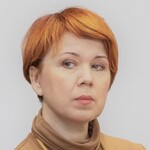
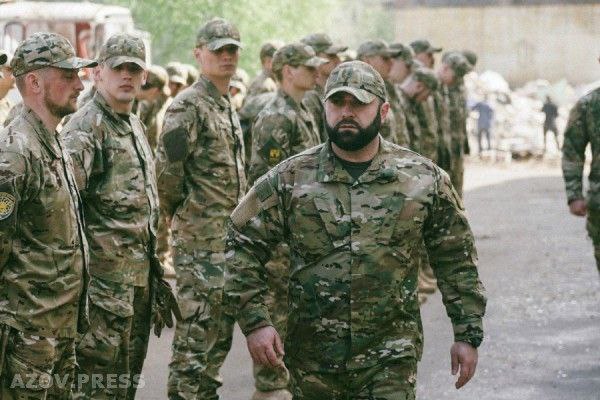
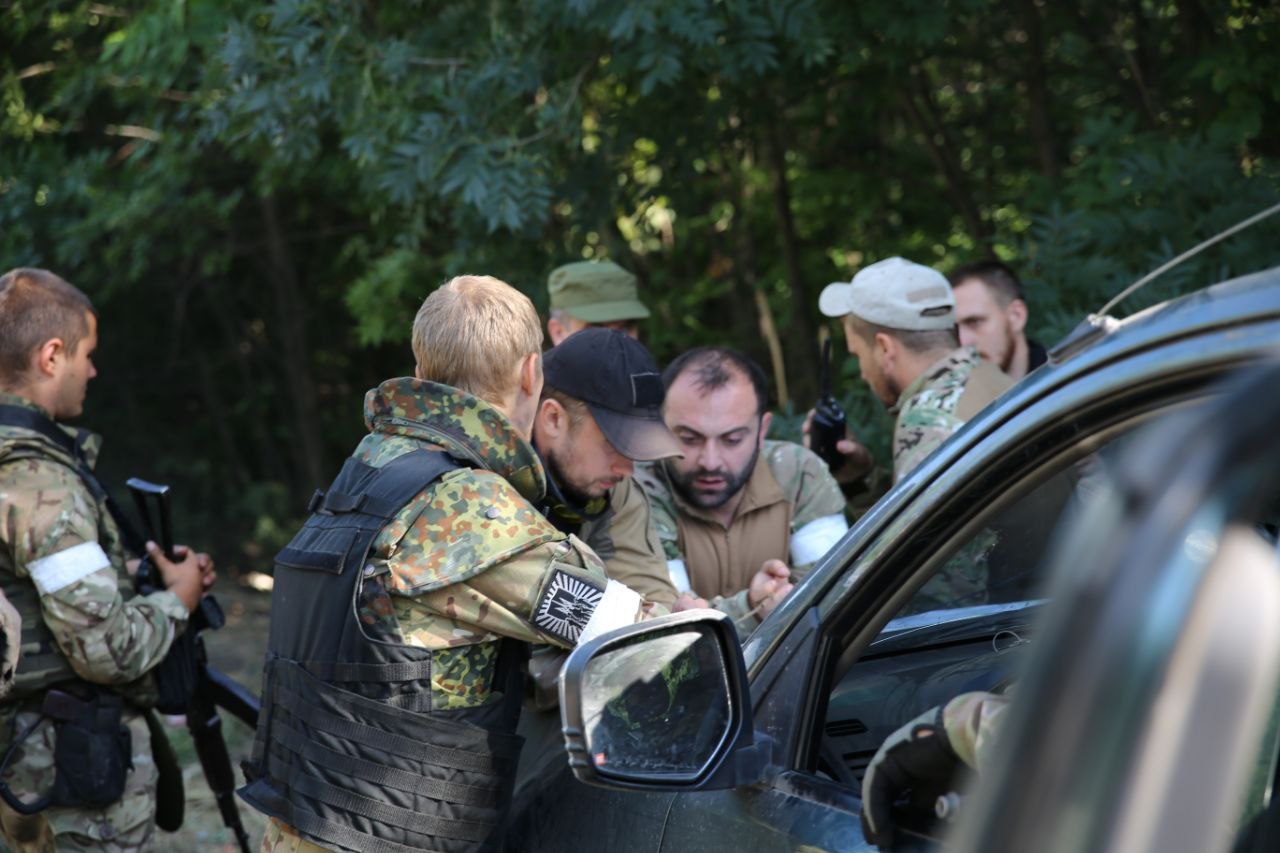
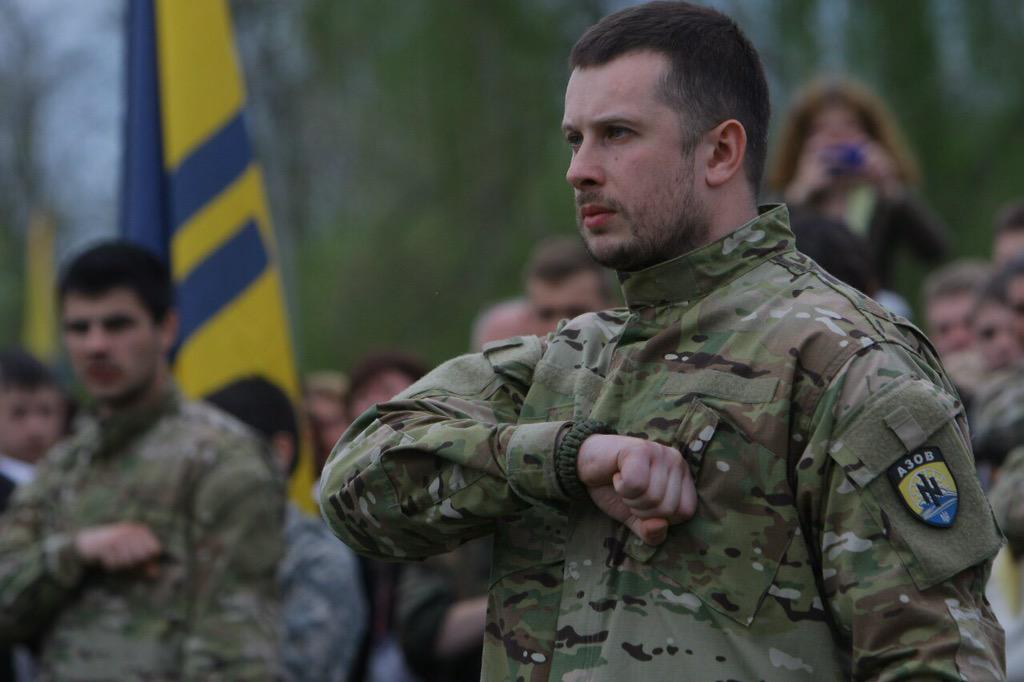

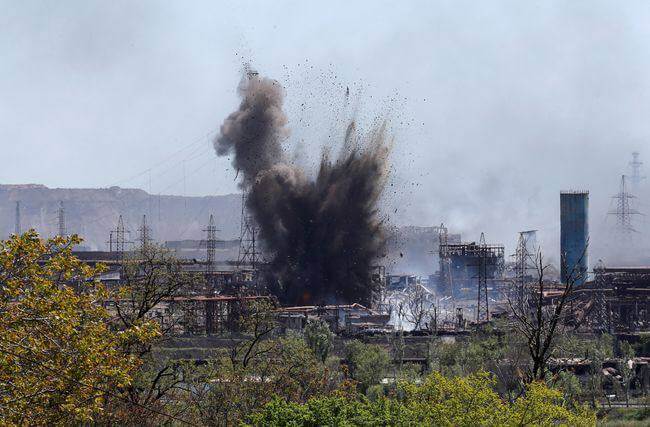
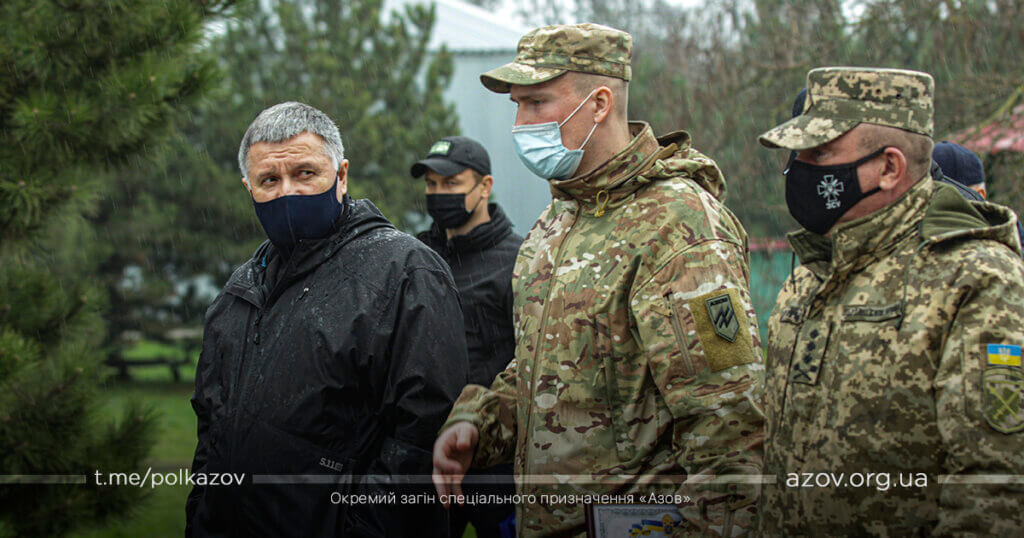


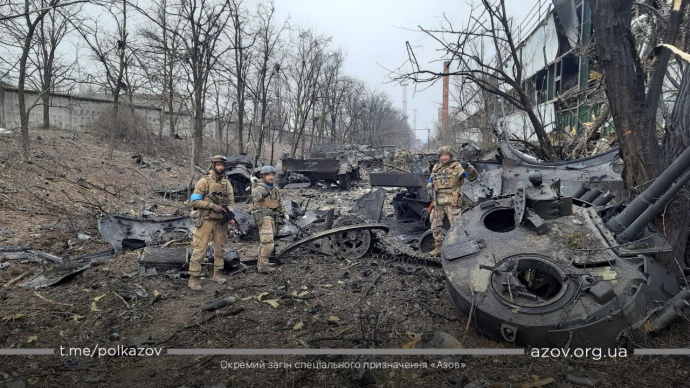
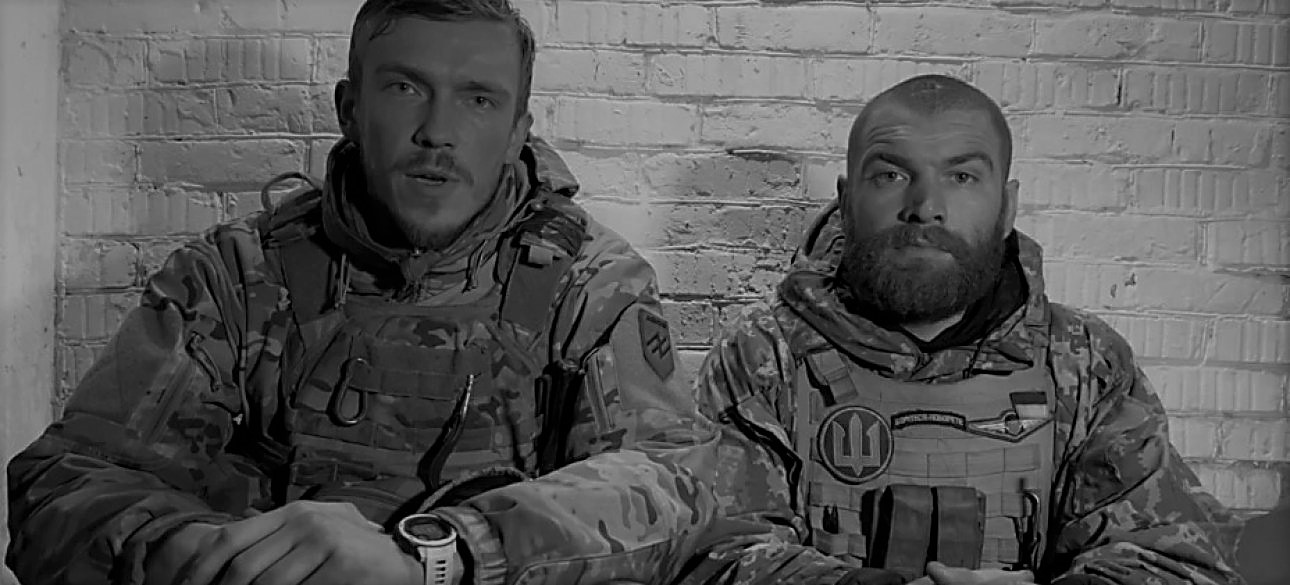
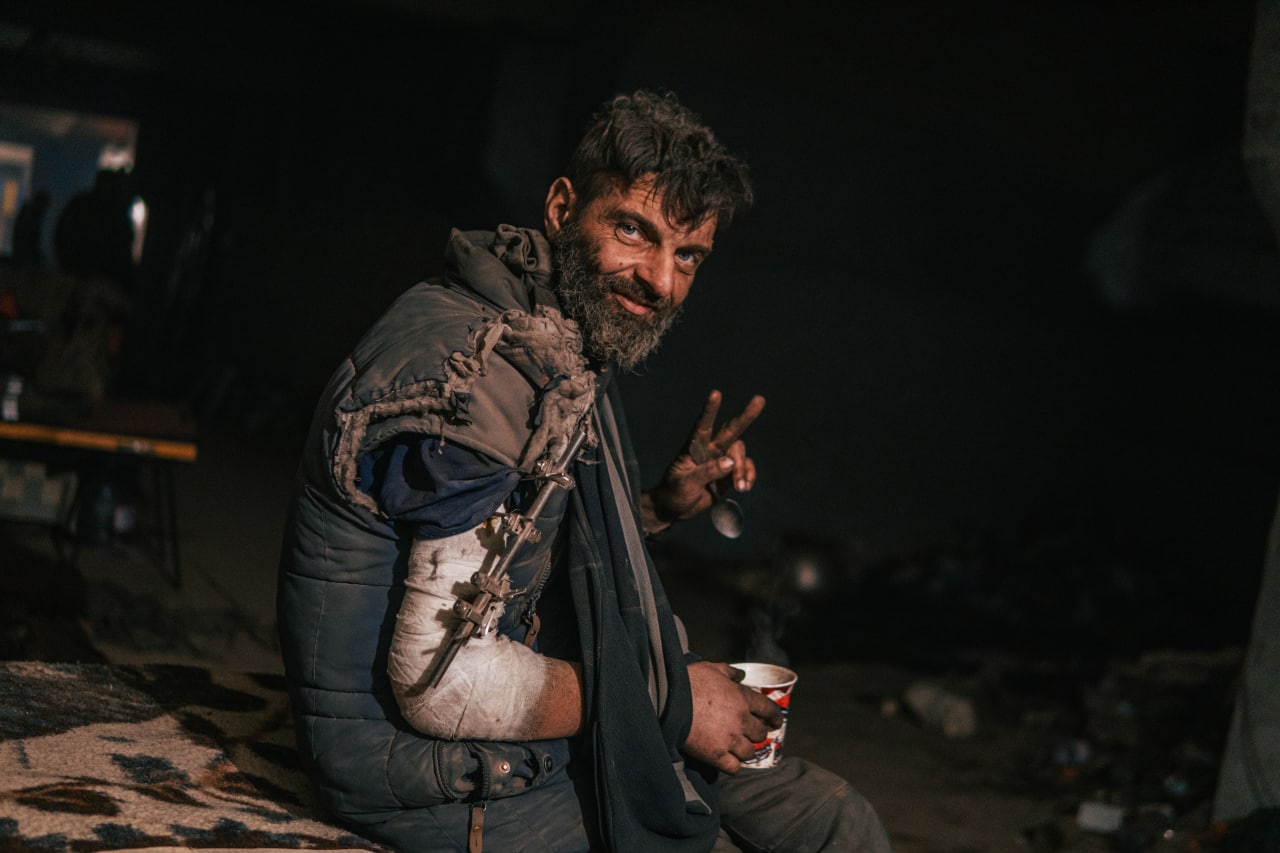
 Login with Google
Login with Google